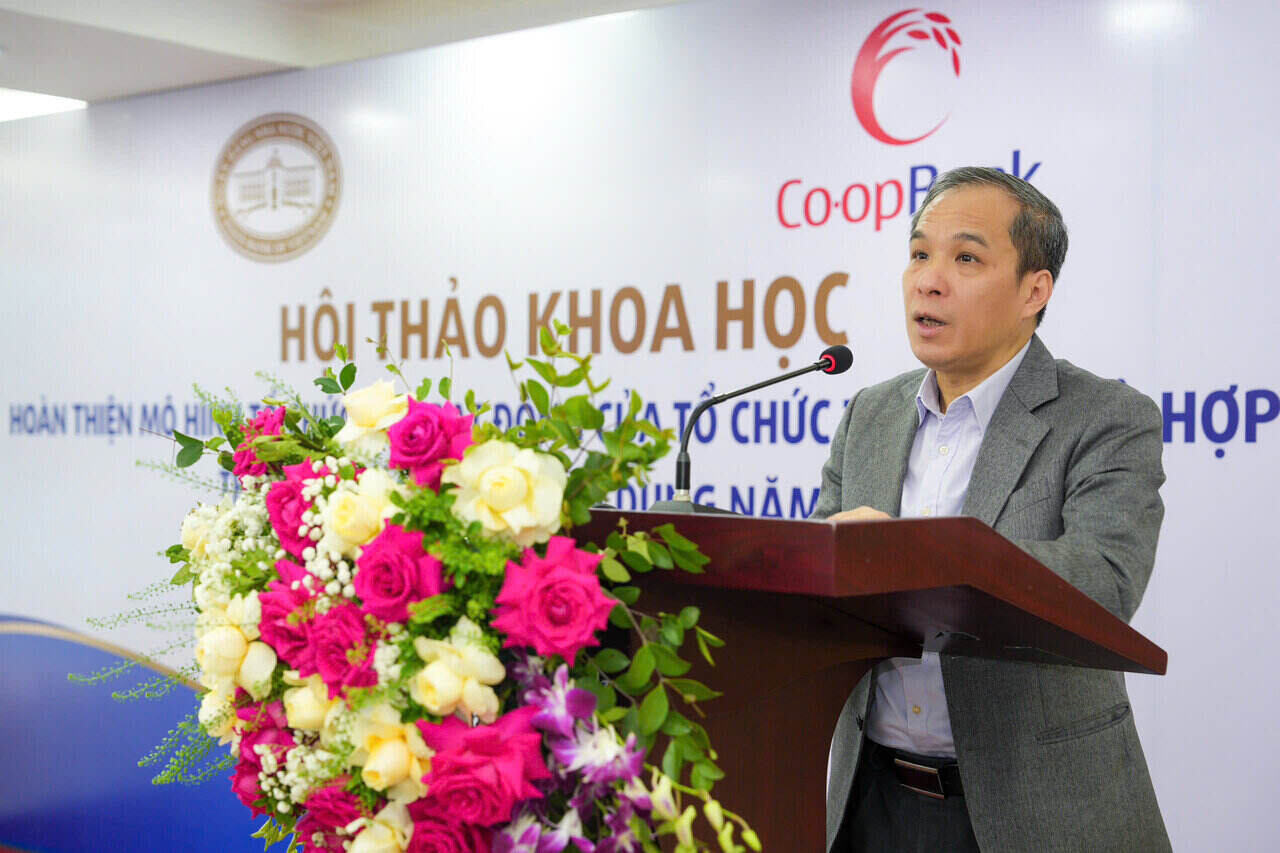On April 9, 2025, in Hanoi, the State Bank and Co-opBank held a scientific workshop to perfect the organization and operation model of cooperative credit institutions (CIs) under the Law on Credit Institutions 2024. This is an important event to remove obstacles in the operational process, while clearly defining a new direction for this particular financial system.
In his opening speech, Deputy Governor of the State Bank Doan Thai Son emphasized that since its establishment in 1993, the credit institution system as a cooperative has grown steadily, contributing positively to socio-economic development, especially in agricultural and rural areas.
As of the end of 2024, this system includes Co-opBank and 1,180 People's Credit Funds (QTDND), with total assets of more than VND 253,000 billion, operating in 57/63 provinces and cities, serving nearly 2 million members who are individuals and households in remote areas.
The 2024 Law on TCTDs, effective from July 1, 2024, once again affirms the cooperative model as the operating platform of Co-opBank and QTDND. Accordingly, Co-opBank plays the role of a bank of the entire QTDND system, a unit regulating capital and financial support. However, the big challenge is how to make this system operate safely, comply with principles and purposes, while promoting practical efficiency.
Deputy Governor Doan Thai Son emphasized that the Workshop is an opportunity to comprehensively assess both theoretically and practically the cooperative model, thereby proposing feasible solutions to improve operational efficiency, especially in the context of digital transformation and increased competition.

Continuing the program, Dr. Can Van Luc, BIDV Training and Research Institute, analyzed: TCTD is a cooperative that is an important link in the national financial system. The QTDND system has affirmed itself as an effective channel for mobilizing and leading capital, directly exploiting idle resources among the population and providing capital for production, business and consumption".
According to Dr. Luc, mobilizing and providing capital through cooperatives as cooperatives not only contributes to the development of agriculture and rural areas but also promotes new rural programs, creates jobs and sustainable poverty reduction in the locality. In particular, this system contributes significantly to reducing black credit, especially in rural and mountainous areas, where people have difficulty accessing bank capital.
However, the paradox is that the network is widespread, but the scale of TCTDs as cooperatives is very small in the banking system. According to BIDV Training and Research Institute, the total assets of the system account for only 1.15%, charter capital accounts for 0.73% of the entire banking industry.
"Credit balance of the People's Committees in the period of 2022-2024 has grown lowly, not commensurate with the potential. Only about 10% of cooperatives have access to capital from the Cooperative Development Support Fund, and less than 1% of cooperatives borrow capital from credit institutions, especially agricultural cooperatives Dr. Luc cited.
The main reasons come from the lack of guaranteed assets, unfeasible business plans and limited management capacity. Cooperatives themselves are also facing many difficulties: outdated technology, unriched products and services, loose system connectivity.
Along with that, some local commercial banks are operating ineffectively, posing a potential liquidity risk due to high lending/huge ratio. Internal control work is weak, violations have not been detected in a timely manner, while management capacity and professional ethics in some places are still limited.
In addition, the information technology system is not yet synchronous, making management and supervision difficult. The role of the People's Credit Union in supporting connections and consulting for People's Credit Unions has not been fully promoted.
More worryingly, the trust of customers and members is affected when violations occur at some QTDND, affecting the overall reputation of the entire system.
Faced with these challenges, experts recommend continuing to improve the legal framework, enhance financial capacity and system governance, promote digital transformation and diversify products and services. In addition, improving connectivity in the system and strengthening customer trust is a key factor helping TCTD to be a cooperative to develop sustainably in the new context.











